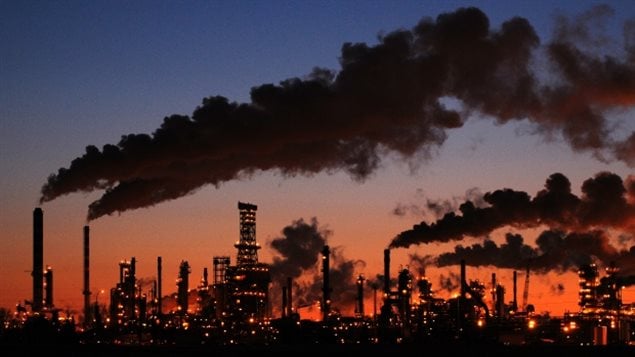World leaders have gathered in Paris to discuss the interconnected issues of greenhouse gas emissions, global warming, and climate change and to seek ways to reduce those emissions.
An often discussed solution involes carbon taxes, and carbon trading but to do that, accurate comparable data is needed.
A respected interational financial auditing, tax, and consulting firm, KPMG says that trying to determine an compare companies and their carbon emissions is currently difficult to impossible.
In their 2015 edition of the KPMG Survey of Corporate Responsibility Reporting, the company says that information provided by companies varies widely in quality, and type of information provided
KPMG reviewed the carbon information published by the world’s largest 250 companies in annual financial and corporate responsibility reports and found that one in five, makes no mention of carbon emissions at all.
Only 53 percent of those corporations state reduction targets, but the majority do not indicate why or how those targets were selected.
The type of information also varies widely. Some 84 percent of reporting companies indicate emissions from their own operations, and 79 percent include emissions from purchased power sources, only half report on emissions from suppliers involved in their subsequent production. Only a handful of companies (7%) include emissions from the use and disposal of their products.
Wim Bartels, a partner with KPMG in the Netherlands and KPMG’s Global Head of Sustainability Reporting & Assurance, is the lead author of KPMG’s survey. He says stakeholders should be able to easily access comparable information on a company’s carbon performance, but that is not the case now. He adds,
“There is a clear need for improvement and global reporting guidelines on carbon could help to address this problem. It should not be left to companies alone to figure this out; industry bodies, regulators, standard setters, investors and others all have a role to play.”
KPMG’s researchers devised a scoring methodology based on these guidelines which they used to assess the quality of reporting from each of the 250 largest companies. Key findings include:
- 1 in 5 large companies in high carbon sectors such as mining, construction and chemicals does not report on carbon in its annual financial or corporate responsibility reports
- European companies have a higher quality of reporting than companies elsewhere in the world
- Companies in the transport & leisure sector produce the highest quality reporting by sector, and oil & gas companies the lowest
- Only half the companies that report on carbon in their annual financial or corporate responsibility reports explain how cutting carbon benefits their business
The KPMG annual report is based on corporate responsibility analysis of 4,500 companies in 45 nations.
source: KPMG-CNW







For reasons beyond our control, and for an undetermined period of time, our comment section is now closed. However, our social networks remain open to your contributions.